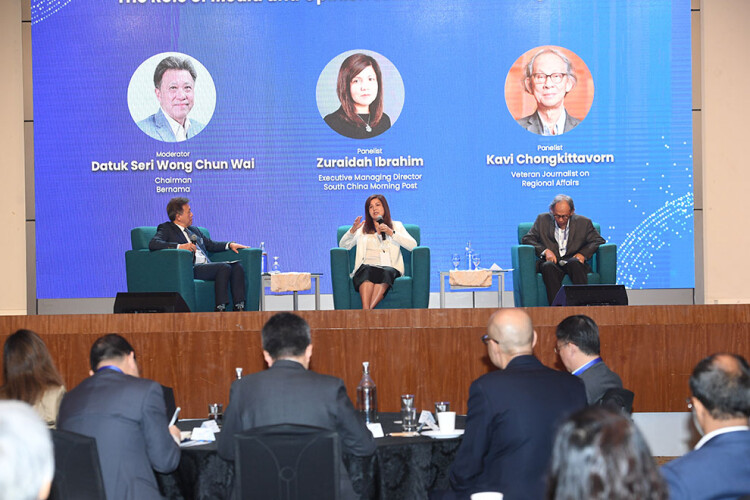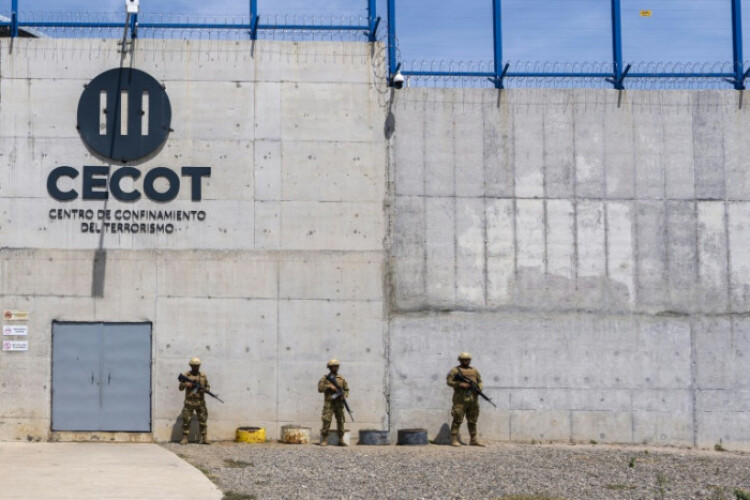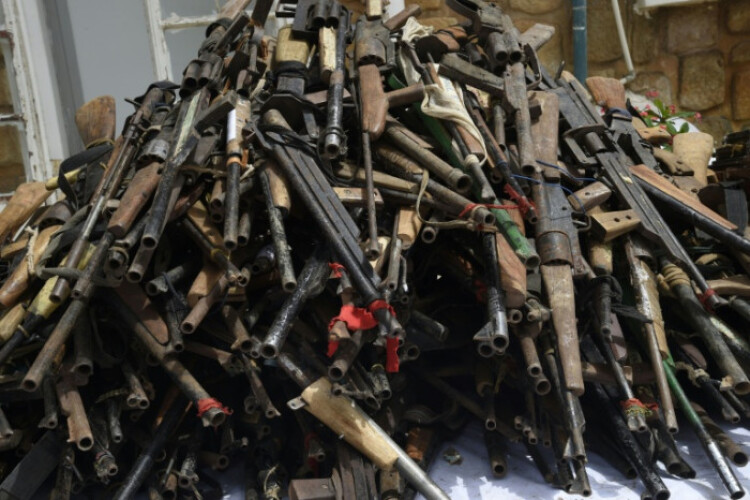
Media representatives at an economic leaders forum have urged journalists to play a more active role in promoting the region by “writing its own future”. They should do this by shifting their focus from prioritising coverage of developed nations to amplifying ASEAN-related issues.
Attendees at the “ASEAN Economic Opinion Leaders Conference: Outlook for 2025”, held in Kuala Lumpur, called for a departure from a “colonial mindset”, noting that it that often overshadows regional concerns.
The call to action was sparked during a January 8 panel discussion on “the Role of Media and Opinion Leaders in Narrating ASEAN”. The discussions drew media professionals and key economic opinion leaders from across the region together at the Malaysian Ministry of Investment, Trade and Industry.
Tourism, a major economic driver for the region, contributes 12% of the combined GDP and generates 42 million jobs.
Datuk Seri Wong Chun Wai, chair of Bernama, the Malaysian national news agency, moderated the session.
He posed the question: “How can ASEAN journalists leverage their positions to promote the region”.
“I think as editors, you should encourage the writing of various articles on tourism and sports in Southeast Asia," Wong suggested.
“People don't want to read long articles. The landscape must change. We live in a world where people read up to eight lines, as most of the time is spent on short videos on TikTok and Instagram,” he added.
An attendee asks a question during the panel discussion on “The Role of Media and Opinion Leaders in Narrating ASEAN”, held on January 8 in Kuala Lumpur. Supplied
Wong then invited panelists to suggest stories that might generate more public interest in ASEAN issues.
Thai veteran journalist Kavi Chongkittavorn proposed that newsrooms focus on the cultural diversity of the region’s nations, highlighting areas like food, fashion, music and sports.
“Each country has its own uniqueness, and these are some of the common themes that we can put together to tell a good story,” he said.
Balancing commercial interests with authentic content
Given the reliance on sponsors to produce high-quality content and the necessity of paid social media platforms for global reach, The Post questioned how regional media companies can balance commercial interests with the need to authentically represent the region’s diverse narratives.
Zuraidah Ibrahim, executive managing director of the South China Morning Post, offered his thoughts.
“I think this is not unique just to covering ASEAN. This is about covering everything, right. The commercial pressures on newsrooms are anomalous. They need to be financially sustainable as I talked about before. This is huge,” he said.
“Yes, there will be this need to do more sponsorship, more small, specific content, but as long as we are able to ring-fence what editorial does to protect the integrity of the work that we do, I think we are still on relatively safe ground,” he added.
The Need for an ASEAN Narrative
Chongkittavorn emphasised the deficiency in ASEAN’s own narrative and the influence of external narratives.
The attendees pose for a group photo with Liew Chin Tong, Malaysian Deputy Minister of Investment, Trade and Industry at the ASEAN Economic Opinion Leaders Conference. Supplied
“One single dispatch from a wire service can overrule all the opinions of Southeast Asia and ASEAN. Why? Because we do not have an ASEAN narrative. This is the most important. We have to encourage ASEAN indigenous [voices],” he said.
He emphasised the need for regional officials to provide information to journalists and for newsrooms to collaborate on cross-border investigative reporting.
“I think the scope for that is tremendous. We can do so much more work by pulling our resources together to look after and take care of issues that matter to us all as a region,” he said.
“Some examples are the environment, migration, crime and scams. These are big stories that require collaboration. In the past, because of language difficulties, we were quite hesitant about that, but I hope this year newsrooms across the regions can do more together as one,” he continued.
Kavi urged journalists to “write their own future” and express their own views on focal issues.
“Don't be afraid as a journalist from a certain country to write about certain things because Southeast Asian views are very important. Be bold in putting up your view especially, not always in English, in your own language,” he added.
He also emphasised the need for diversified opinions.
“These days, even with the power of the internet and the views of social media, a lot of views from outside come in and mess up, you know, the Southeast Asian view. We completely lost our way,” he shared.
“We can write our own future – let us draw our own future pathway,” he added.
Zuraidah concluded by echoing the compassionate phrase from Malaysian Prime Minister Anwar Ibrahim, who stated that ASEAN is experiencing a “second renaissance”.
“I believe that someone who has grown up in this region feels very deeply for it, and I sincerely hope that the region succeeds in sparking this second renaissance for ASEAN,” he said.
Attendees at the “ASEAN Economic Opinion Leaders Conference: Outlook for 2025”, held in Kuala Lumpur, called for a departure from a “colonial mindset”, noting that it that often overshadows regional concerns.
The call to action was sparked during a January 8 panel discussion on “the Role of Media and Opinion Leaders in Narrating ASEAN”. The discussions drew media professionals and key economic opinion leaders from across the region together at the Malaysian Ministry of Investment, Trade and Industry.
Tourism, a major economic driver for the region, contributes 12% of the combined GDP and generates 42 million jobs.
Datuk Seri Wong Chun Wai, chair of Bernama, the Malaysian national news agency, moderated the session.
He posed the question: “How can ASEAN journalists leverage their positions to promote the region”.
“I think as editors, you should encourage the writing of various articles on tourism and sports in Southeast Asia," Wong suggested.
“People don't want to read long articles. The landscape must change. We live in a world where people read up to eight lines, as most of the time is spent on short videos on TikTok and Instagram,” he added.
An attendee asks a question during the panel discussion on “The Role of Media and Opinion Leaders in Narrating ASEAN”, held on January 8 in Kuala Lumpur. Supplied
Wong then invited panelists to suggest stories that might generate more public interest in ASEAN issues.
Thai veteran journalist Kavi Chongkittavorn proposed that newsrooms focus on the cultural diversity of the region’s nations, highlighting areas like food, fashion, music and sports.
“Each country has its own uniqueness, and these are some of the common themes that we can put together to tell a good story,” he said.
Balancing commercial interests with authentic content
Given the reliance on sponsors to produce high-quality content and the necessity of paid social media platforms for global reach, The Post questioned how regional media companies can balance commercial interests with the need to authentically represent the region’s diverse narratives.
Zuraidah Ibrahim, executive managing director of the South China Morning Post, offered his thoughts.
“I think this is not unique just to covering ASEAN. This is about covering everything, right. The commercial pressures on newsrooms are anomalous. They need to be financially sustainable as I talked about before. This is huge,” he said.
“Yes, there will be this need to do more sponsorship, more small, specific content, but as long as we are able to ring-fence what editorial does to protect the integrity of the work that we do, I think we are still on relatively safe ground,” he added.
The Need for an ASEAN Narrative
Chongkittavorn emphasised the deficiency in ASEAN’s own narrative and the influence of external narratives.
The attendees pose for a group photo with Liew Chin Tong, Malaysian Deputy Minister of Investment, Trade and Industry at the ASEAN Economic Opinion Leaders Conference. Supplied
“One single dispatch from a wire service can overrule all the opinions of Southeast Asia and ASEAN. Why? Because we do not have an ASEAN narrative. This is the most important. We have to encourage ASEAN indigenous [voices],” he said.
He emphasised the need for regional officials to provide information to journalists and for newsrooms to collaborate on cross-border investigative reporting.
“I think the scope for that is tremendous. We can do so much more work by pulling our resources together to look after and take care of issues that matter to us all as a region,” he said.
“Some examples are the environment, migration, crime and scams. These are big stories that require collaboration. In the past, because of language difficulties, we were quite hesitant about that, but I hope this year newsrooms across the regions can do more together as one,” he continued.
Kavi urged journalists to “write their own future” and express their own views on focal issues.
“Don't be afraid as a journalist from a certain country to write about certain things because Southeast Asian views are very important. Be bold in putting up your view especially, not always in English, in your own language,” he added.
He also emphasised the need for diversified opinions.
“These days, even with the power of the internet and the views of social media, a lot of views from outside come in and mess up, you know, the Southeast Asian view. We completely lost our way,” he shared.
“We can write our own future – let us draw our own future pathway,” he added.
Zuraidah concluded by echoing the compassionate phrase from Malaysian Prime Minister Anwar Ibrahim, who stated that ASEAN is experiencing a “second renaissance”.
“I believe that someone who has grown up in this region feels very deeply for it, and I sincerely hope that the region succeeds in sparking this second renaissance for ASEAN,” he said.






